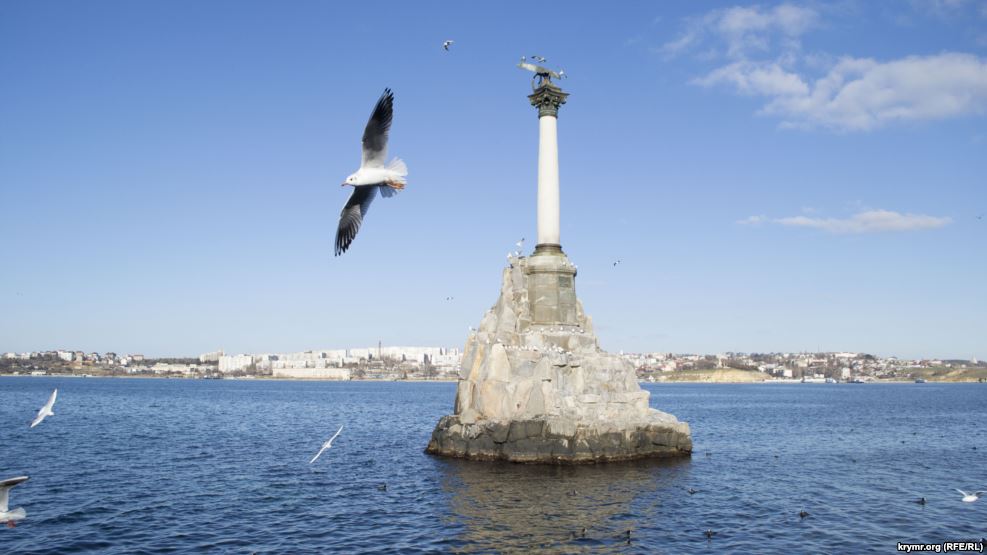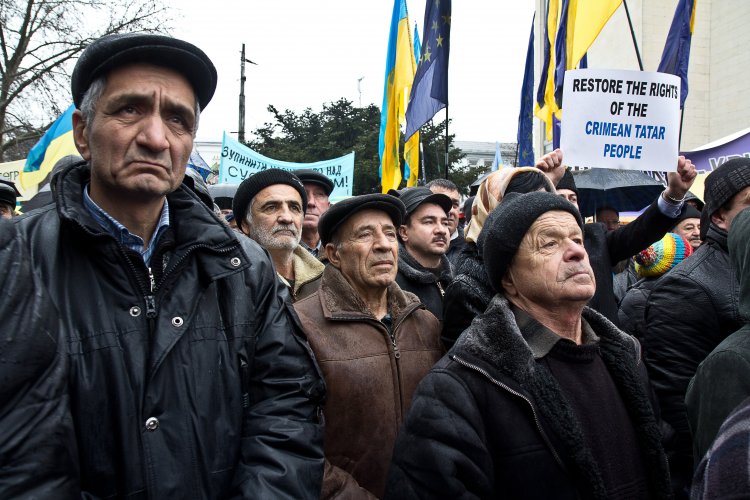Thanks to comments made by the former Deputy Chief of Staff Yuriy Dumanskyi, Ukrainian and world media have begun to discuss the possible "exchange" of Crimea for Sevastopol -- in other words, preserving the Russian status of the city and maintaining the Black Sea Fleet there in exchange for Russia's renouncement of the Crimean annexation.
This plan has about the same value as the recent conjecture by MP Nadiya Savchenko that Ukraine would have to give up Crimea if it wanted to regain control over Russian-occupied territories in the Donbas. This is because at the heart of similar proposals is a misunderstanding of the real goals of the expansionist foreign policy of the Kremlin. Not to mention the fact that anyone with self-respect does not throw away territories, and Sevastopol, despite what Russian revanchists may say, is as much Ukraine as Kyiv, Lviv, Lutsk or Donetsk.
Outwardly, of course, everything appears attractive and logical. Sevastopol is the city of "Russian glory," the base of the Black Sea Fleet. Many residents of this Ukrainian city are still under the thrall of Russian propaganda. Perhaps God is really with Sevastopol? But it must be understood why Russia really needed Sevastopol.
In August 1991, when Ukraine declared its independence, the main Russian claim was associated with Crimea -- with Crimea and not specifically with Sevastopol. The Russian leadership was convinced that if Ukraine left the USSR, Crimea would separate from Ukraine and that this would keep Ukraine in a strong union with Moscow. It is not by chance that, during the meeting in the Belavezha Forest, Boris Yeltsin asked Leonid Kuchma how many Crimeans had voted for Ukrainian independence. (On Dec. 8, 1991, in a dacha in Belarus's Belavezha forest, the leaders of Ukraine, Belarus, and Russia signed the so-called Belavezha accords dissolving the Soviet Union -- Ed.).
When Moscow realized that the Crimean plan had failed, it decided to gain a foothold in Sevastopol and turn this city into a bridgehead of Russian influence in the peninsula, and the peninsula itself into the "unsinkable aircraft carrier" of Russian propaganda and nostalgia for the USSR, and the potential hotbed of instability. But the special operation to destabilize Crimea with the help of the first president of autonomy, the Russian agent Yuriy Meshkov, failed ignominiously. Russia managed to keep Sevastopol under its influence primarily because the Black Sea Fleet continued to be based in the city and its personnel was seen as the future occupational contingent. Yes, in Russia they were thinking about the occupation of Crimea since the early '90s. This -- and not the preservation of their fleet on the Black Sea -- was the main reason why Russians meticulously dictated all the parameters of the Black Sea Fleet's placement on Ukrainian soil. And this is precisely why Russian President Boris Yeltsin repeatedly postponed his trip to Kyiv and the signing of the grand Treaty of Friendship between Russia and Ukraine. It was not the Treaty that Yeltsin needed, but the legalized military presence, the base. This is why Russia needed Sevastopol.
It took two decades and the trap closed. The members of the Black Sea Fleet, consisting of "friendly sailors" who participated in parades with our guys, in a few days turned into a rabid gang of invaders. Sevastopol would become a springboard for further destabilization and the subsequent annexation of Crimea. The annexation itself was to be the trigger for the war against Ukraine, the occupation of our territory, the overthrow of the Ukrainian government, and its replacement with a puppet regime. But here the Ukrainian people rose up in defense of their homeland and the aggressor was forced to retreat, to become entrenched in Donetsk, Luhansk, Horlivka…
And what about Sevastopol? The role of this city has been exhausted. It was not the "city of Russian glory"; it was a trap city. And now that it has played its role, its fate is to become an ordinary provincial hole like many others in the country that has occupied it. A hole with a seaview.
The Black Sea Fleet is a fiction as well. The Black Sea, in fact, has already been NATO's inland lake for some time. It makes no sense for Russia to confront the alliance and to compete with it in the Black Sea basin, all the more so since there are much more important places in the world for the demonstration of naval muscle (if, of course, the muscle is the Admiral Kuznetsov). The fleet was important as long as Sevastopol was Ukrainian. It is a fleet that has only one enemy -- Ukraine. And also, perhaps, Georgia. But now, when the Ukrainian presence in Crimea has been eliminated, there is no practical reason for keeping the Black Sea Fleet there. Nor for the "sacredness" of Sevastopol.
Therefore, Putin will never exchange Sevastopol for Crimea, and Crimea for the Donbas. All these conquests are simply steps to conquer Ukraine. By themselves, nobody needs them in Russia. If Russia ever abandons the very idea of conquering our country, it will return Sevastopol, and Crimea, and the Donbas.




